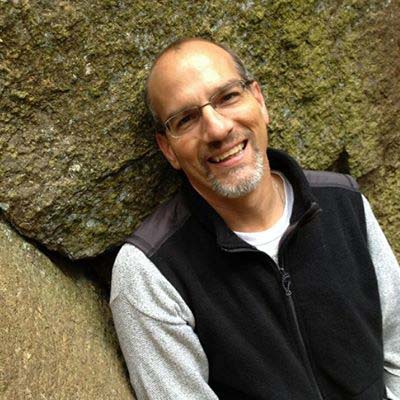
Michael Tlusty
Professor of Sustainability and Food Solutions / SFE Graduate Program Director
617.287.5285
Biography
Michael focuses on the sustainability of the ways humans interact with wildlife (native and domestic) from a bioregional perspective. His main focus to increase sustainability of food systems through decreasing waste and helping the entire value chain do a better job creating the food we already produce. Much of his practical food systems work is in the aquaculture field. He also studies the trade of wildlife products with the intent to improve the legal trade and stop the illegal trade.
Area of Expertise
Food system sustainability, Aquaculture, Determinants of legal and Illegal wildlife trade, Bioregional Action Learning & Transformation
Degrees
PhD, Biology, Syracuse University
BS, Animal Science, University of Illinois
Professional Publications & Contributions
A complete list may be found at my web site (link)
B. Michael Marshall, A.L. Alamshah, P. Cardoso, P. Cassey, S. Chekunov, E.A. Eskew, C.S. Fukushima, P. García-Díaz, M.L. Gore, J.L. Lockwood, A.L. Rhyne, J.S. Sinclair, C. Thomas Strine, O.C. Stringham, M.F. Tlusty, J.W. Valdez, F. Watters, & A.C. Hughes, The magnitude of legal wildlife trade and implications for species survival, Proc. Natl. Acad. Sci. U.S.A. 122 (2) e2410774121, (2025).
Tlusty MF, Cassey P, Rhyne AL, Omrow D, Stoett P. 2024. Species-level, digitized wildlife trade data is essential for achieving biodiversity targets. Proc Nat Acad Sci.121 (16), e2306869121
Omrow, D., Anagnostou, M., Cassey, P., Cooke, S.J., Jordan, S., Kirkwood, A.E., MacNeill, T., Mirrlees, T., Pedersen, I., Stoett, P. and Tlusty, M.F., 2024. Compliance and enforcement in a brave new (green) world: best practices and technologies for green governance. FACETS, 9, pp.1-8.
Tlusty, M.F., Cawthorn, D.M., Goodman, O.L., Rhyne, A.L. and Roberts, D.L., 2023. Real-time automated species level detection of trade document systems to reduce illegal wildlife trade and improve data quality. Biological Conservation, 281, p.110022.
Page, G., Parker, H.E., Matey, S., Tlusty, M.F. and Woods, J.C., 2021. A Transformations Transect as Social Innovation: COBALT Network Forms in the Gulf of Maine to Develop the Concept. Social Innovations Journal, 5.
Tlusty, M. F. (2020). Animal health: the foundation for aquaculture sustainability. In Aquaculture Health Management (pp. 1–15). Academic Press.
Tlusty, M.F., Tyedmers, P., Bailey, M., Ziegler, F., Henriksson, P.J., Béné, C., Bush, S., Newton, R., Asche, F., Little, D.C. and Troell, M., (2020). Reframing the sustainable seafood narrative. Global Environmental Change, 59, 101991.
